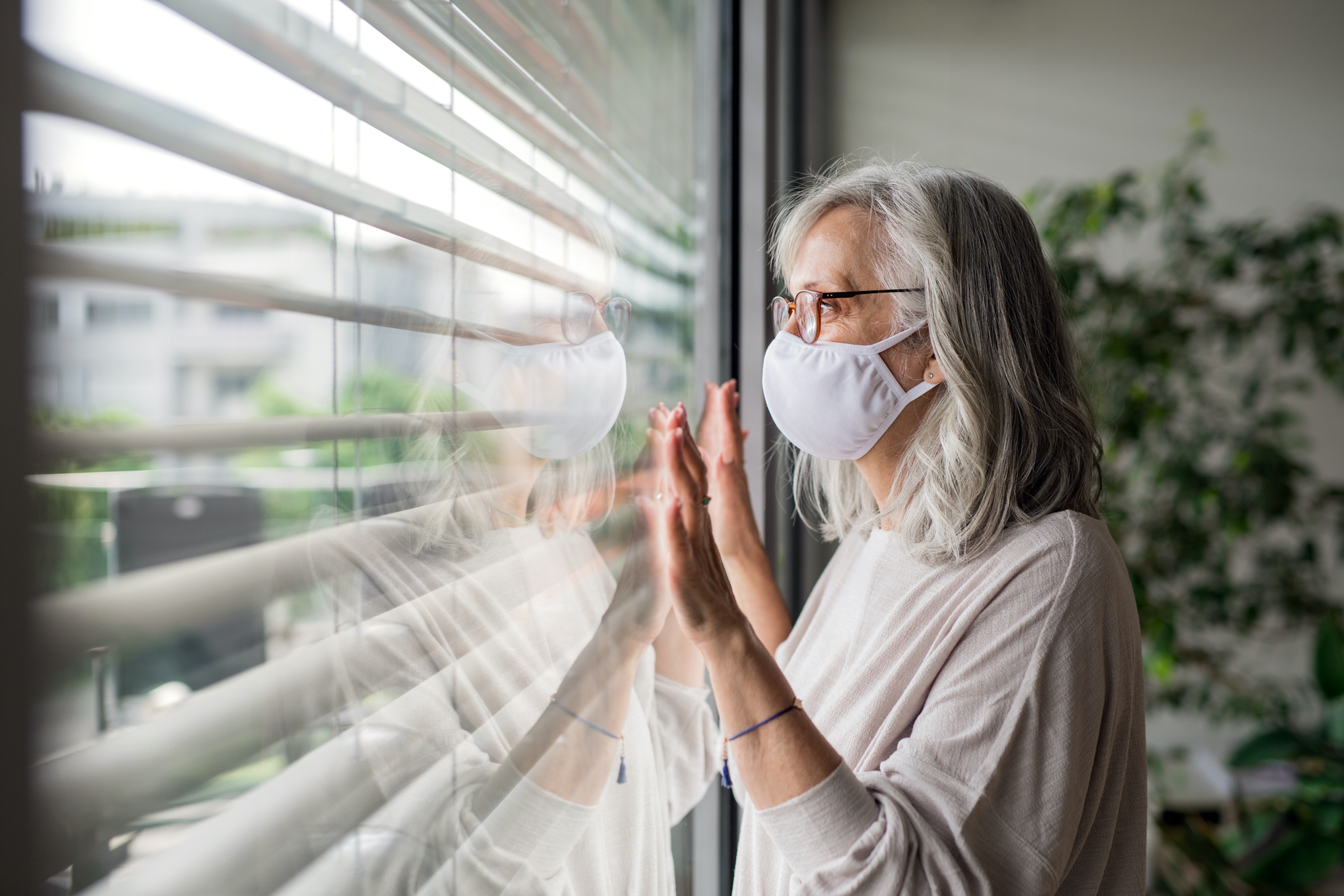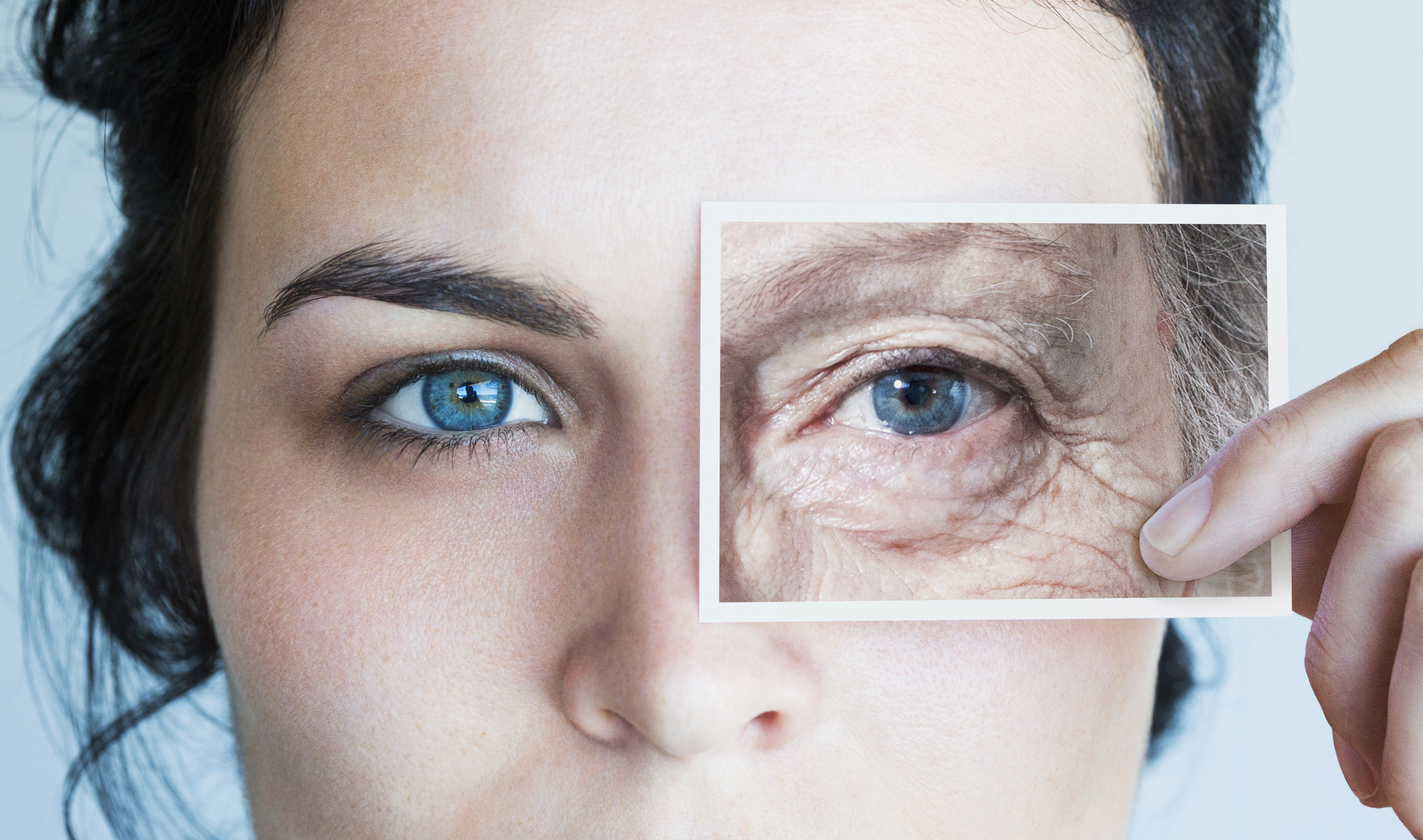Older Adults Battle Long-Term Effects of COVID-19
Seniors are more likely to suffer from long COVID, and it's unclear when, or even if, they will fully recover.

Profit and prosper with the best of Kiplinger's advice on investing, taxes, retirement, personal finance and much more. Delivered daily. Enter your email in the box and click Sign Me Up.
You are now subscribed
Your newsletter sign-up was successful
Want to add more newsletters?

Delivered daily
Kiplinger Today
Profit and prosper with the best of Kiplinger's advice on investing, taxes, retirement, personal finance and much more delivered daily. Smart money moves start here.

Sent five days a week
Kiplinger A Step Ahead
Get practical help to make better financial decisions in your everyday life, from spending to savings on top deals.

Delivered daily
Kiplinger Closing Bell
Get today's biggest financial and investing headlines delivered to your inbox every day the U.S. stock market is open.

Sent twice a week
Kiplinger Adviser Intel
Financial pros across the country share best practices and fresh tactics to preserve and grow your wealth.

Delivered weekly
Kiplinger Tax Tips
Trim your federal and state tax bills with practical tax-planning and tax-cutting strategies.

Sent twice a week
Kiplinger Retirement Tips
Your twice-a-week guide to planning and enjoying a financially secure and richly rewarding retirement

Sent bimonthly.
Kiplinger Adviser Angle
Insights for advisers, wealth managers and other financial professionals.

Sent twice a week
Kiplinger Investing Weekly
Your twice-a-week roundup of promising stocks, funds, companies and industries you should consider, ones you should avoid, and why.

Sent weekly for six weeks
Kiplinger Invest for Retirement
Your step-by-step six-part series on how to invest for retirement, from devising a successful strategy to exactly which investments to choose.
Marina Oshana was previously diagnosed with a pulmonary condition that sometimes led to fever and fatigue, but the symptoms she started experiencing in July 2020 were completely different. Everything from daily activities to exercise became a struggle. "I couldn't walk around the block without chest pains," Oshana, 63, says. "My lung capacity declined if I engaged in any cardio activity."
Oshana, who was a philosophy professor at the University of California, Davis, before retiring two years ago, convinced her pulmonologist to give her a COVID- 19 antibody test last August. It came back positive. In the winter of 2020, she had been severely ill but tested negative for flu. Although she now believes that illness was COVID, it happened so early in the pandemic that her doctor didn't test for it.
More than a year later, Oshana still hasn't recovered. She has been using an inhaler since August and more recently was given a portable oxygen tank. Many older adults, like Oshana, suffer from long-lasting effects of COVID-19, and it is unclear when, or even if, these patients will fully recover. "The older you get, the more vulnerable you are no matter the disease," says Dr. Avi Nath, the clinical director at the National Institute of Neurological Disorders and Stroke in Bethesda, Md. "The same is true for COVID."
From just $107.88 $24.99 for Kiplinger Personal Finance
Become a smarter, better informed investor. Subscribe from just $107.88 $24.99, plus get up to 4 Special Issues

Sign up for Kiplinger’s Free Newsletters
Profit and prosper with the best of expert advice on investing, taxes, retirement, personal finance and more - straight to your e-mail.
Profit and prosper with the best of expert advice - straight to your e-mail.
A Range of COVID-19 Symptoms
Older adults have been hit hard; 95% of all coronavirus deaths in the U.S. involved a patient who was at least 50 years old, according to data from the Centers for Disease Control and Prevention. Older adults are also more likely to suffer from the virus's lasting effects, commonly known as long COVID. Between 50% and 80% of all patients had symptoms three months after contracting the virus, and those who were at least 50 years old were more likely to report lingering issues, according to a post on the Harvard Health Blog.
That's because younger people are typically healthier to begin with, says Dr. Aaron Bunnell, co-director of the University of Washington School of Medicine's Post-COVID Rehabilitation and Recovery Clinic in Seattle. "When you come into an illness, your baseline affects your outcome," Bunnell says. "A 60-year-old man has a different cardiopulmonary reserve than a 20-year-old. If you take a 20% hit to your cardiovascular endurance, the older man has less reserve."
Patients with long COVID have reported a range of symptoms, including fatigue, loss of smell or taste, insomnia, shortness of breath, brain fog and an elevated heart rate. Those who spent time in an intensive care unit often face greater complications and a longer recovery. It's common for hospitalized patients to suffer from post-intensive-care syndrome and critical illness neuropathy. The former affects cognition and the latter refers to weakness of the patient's limbs. "The ICU can be a very difficult place to be," Bunnell says.
Older adults with long COVID are prone to anxiety, depression, confusion and loss of appetite. Dr. Souzan Swift, a licensed psychologist with Heal, a teletherapy practice, believes these symptoms are caused directly by the virus and the stress of the past year. Treatment includes therapy and medications for these patients, Swift says. "They were already feeling nervous and scared and then you bring in these symptoms. They are wondering when they will get better."
Living in Limbo
Some sufferers of long COVID have been forced to retire early or apply for disability benefits, says Dr. Jason Maley, program director of the Critical Illness and COVID- 19 Survivorship Program at Beth Israel Deaconess Medical Center and Harvard Medical School in Boston. "They can't function in their job because of exhaustion or difficulty with thinking and memory."
Their lives are in limbo because so little is known about the treatment or prognosis for patients with long COVID even though clinics to treat these patients have opened since the pandemic began. The specialized programs help streamline treatment, with all the patient's doctors working together in close consultation, Bunnell says. These efforts include physical therapy to help patients improve their breathing and energy levels as well as cognitive therapies to bolster concentration and mental acuity, Maley says. The Survivor Corps, a grassroots organization of COVID-19 survivors, has a database of post-COVID-care clinics (survivorcorps.com/pccc). If you don't live near one of these clinics, ask local doctors if they have experience treating long COVID before scheduling an appointment.
Long COVID patients should also get vaccinated. The COVID-19 vaccine not only protects them from getting sick again but also may reduce long COVID symptoms. In some surveys, up to a third of patients reported that their long COVID symptoms improved several weeks after vaccination, Maley says. Bunnell tells patients not to give up hope. "It's unlikely to be this way the rest of your life," he says. "You will make gradual progress."
Oshana certainly has. One side effect, a rapid rise in her heart rate, is gone. Her pulmonologist has been happy with her progress, though he believes a full recovery will occur at a "glacial pace," she says. Before contracting COVID, Oshana enjoyed dancing, weight training and hiking. She can still do most of those activities but not to the same extent as before.
She warns other COVID survivors to pay attention to their health. "If you notice you aren't feeling well and things are out of character physiologically, take it seriously," Oshana says. If you are diagnosed with long COVID, recognize that life might not be the same, she says. "You might have to dial back your expectations about what you are able to do now. That's been the hardest lesson for me."
Profit and prosper with the best of Kiplinger's advice on investing, taxes, retirement, personal finance and much more. Delivered daily. Enter your email in the box and click Sign Me Up.
Jackie Stewart is the senior retirement editor for Kiplinger.com and the senior editor for Kiplinger's Retirement Report.
-
 You Received a Life Insurance Payout. Here's How to Avoid an IRS Audit.
You Received a Life Insurance Payout. Here's How to Avoid an IRS Audit.You received a big check from your loved one's life insurance policy. Will the IRS be expecting a check from you now?
-
 Supreme Court Strikes Down Trump Tariffs: What's Next for Consumers and Retailers?
Supreme Court Strikes Down Trump Tariffs: What's Next for Consumers and Retailers?Tax Law This landmark decision will reshape U.S. trade policy and could define the outer boundaries of presidential economic power for years to come.
-
 Before You Go to Costco, Try This Grocery Strategy First
Before You Go to Costco, Try This Grocery Strategy FirstA simple shift in how you plan meals could help you spend and waste less.
-
 10 Retirement Tax Plan Moves to Make Before December 31
10 Retirement Tax Plan Moves to Make Before December 31Retirement Taxes Proactively reviewing your health coverage, RMDs and IRAs can lower retirement taxes in 2025 and 2026. Here’s how.
-
 The Rubber Duck Rule of Retirement Tax Planning
The Rubber Duck Rule of Retirement Tax PlanningRetirement Taxes How can you identify gaps and hidden assumptions in your tax plan for retirement? The solution may be stranger than you think.
-
 COVID Aged Your Brain Faster, Even if You Didn't Get Sick
COVID Aged Your Brain Faster, Even if You Didn't Get SickWhether you contracted COVID or not, your brain took a hit. Here's what that means for your health and what you can do about it.
-
 What Does Medicare Not Cover? Eight Things You Should Know
What Does Medicare Not Cover? Eight Things You Should KnowMedicare Part A and Part B leave gaps in your healthcare coverage. But Medicare Advantage has problems, too.
-
 QCD Limit, Rules and How to Lower Your 2026 Taxable Income
QCD Limit, Rules and How to Lower Your 2026 Taxable IncomeTax Breaks A QCD can reduce your tax bill in retirement while meeting charitable giving goals. Here’s how.
-
 457 Plan Contribution Limits for 2026
457 Plan Contribution Limits for 2026Retirement plans There are higher 457 plan contribution limits in 2026. That's good news for state and local government employees.
-
 Estate Planning Checklist: 13 Smart Moves
Estate Planning Checklist: 13 Smart Movesretirement Follow this estate planning checklist for you (and your heirs) to hold on to more of your hard-earned money.
-
 Medicare Basics: 12 Things You Need to Know
Medicare Basics: 12 Things You Need to KnowMedicare There's Medicare Part A, Part B, Part D, Medigap plans, Medicare Advantage plans and so on. We sort out the confusion about signing up for Medicare — and much more.